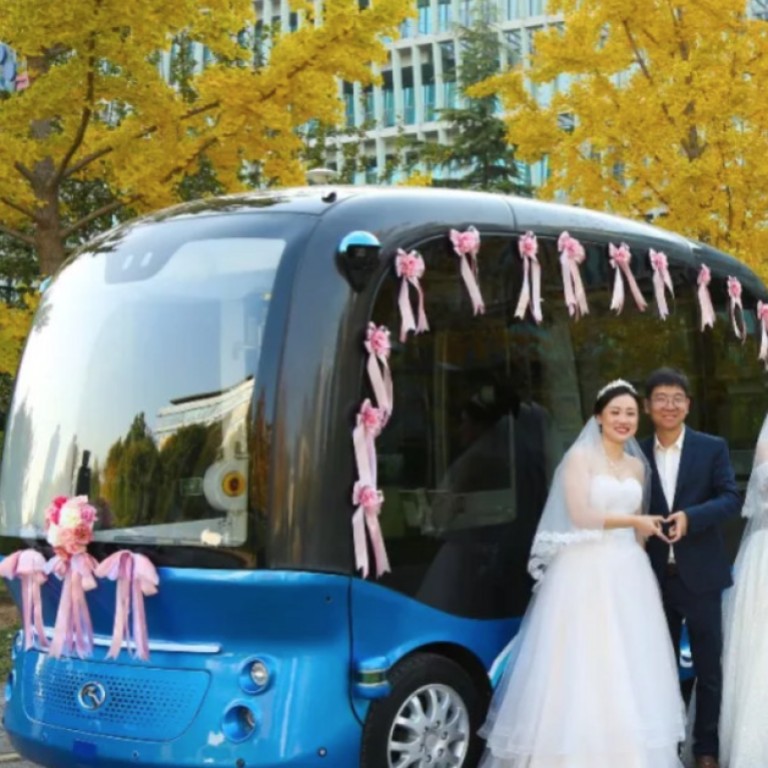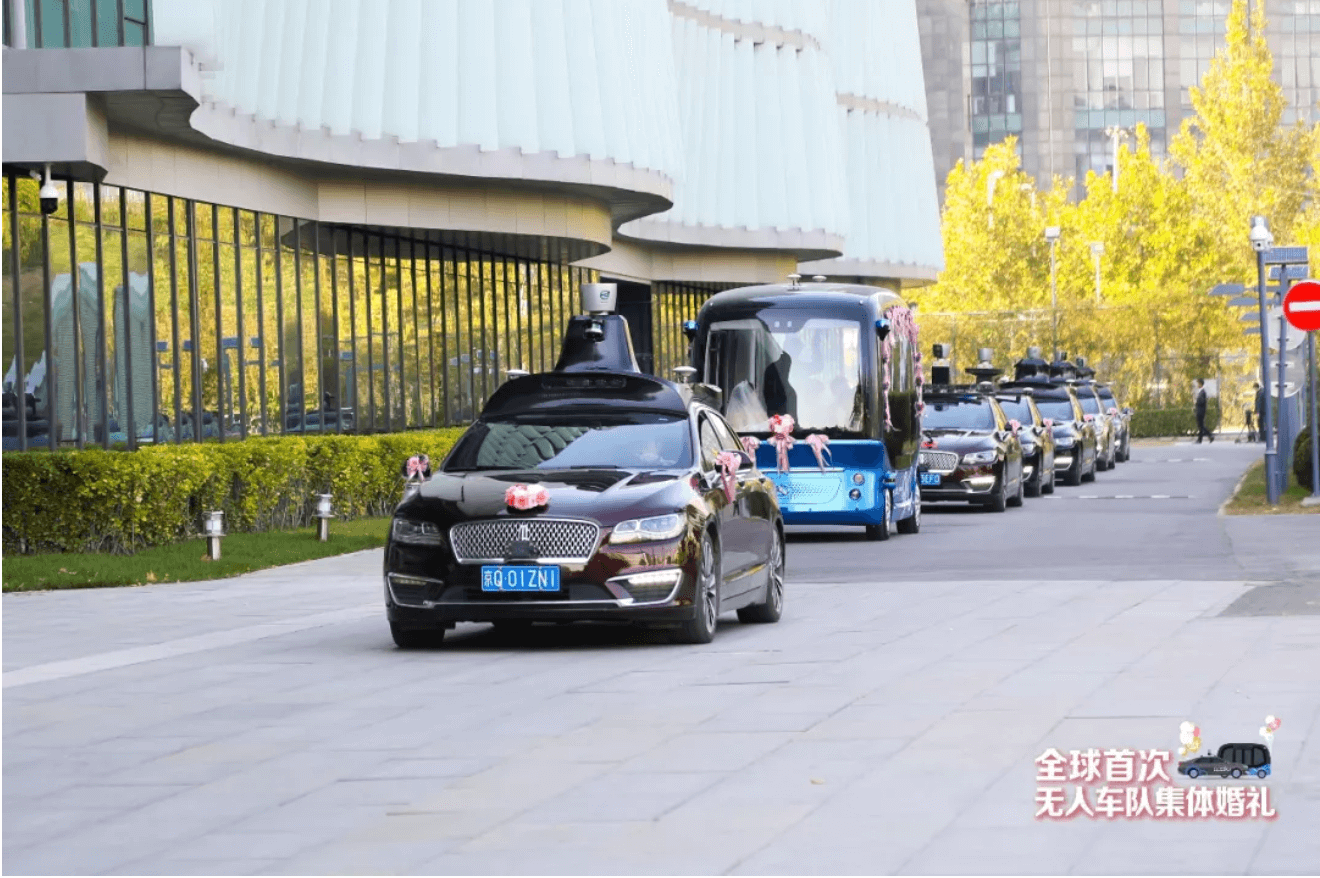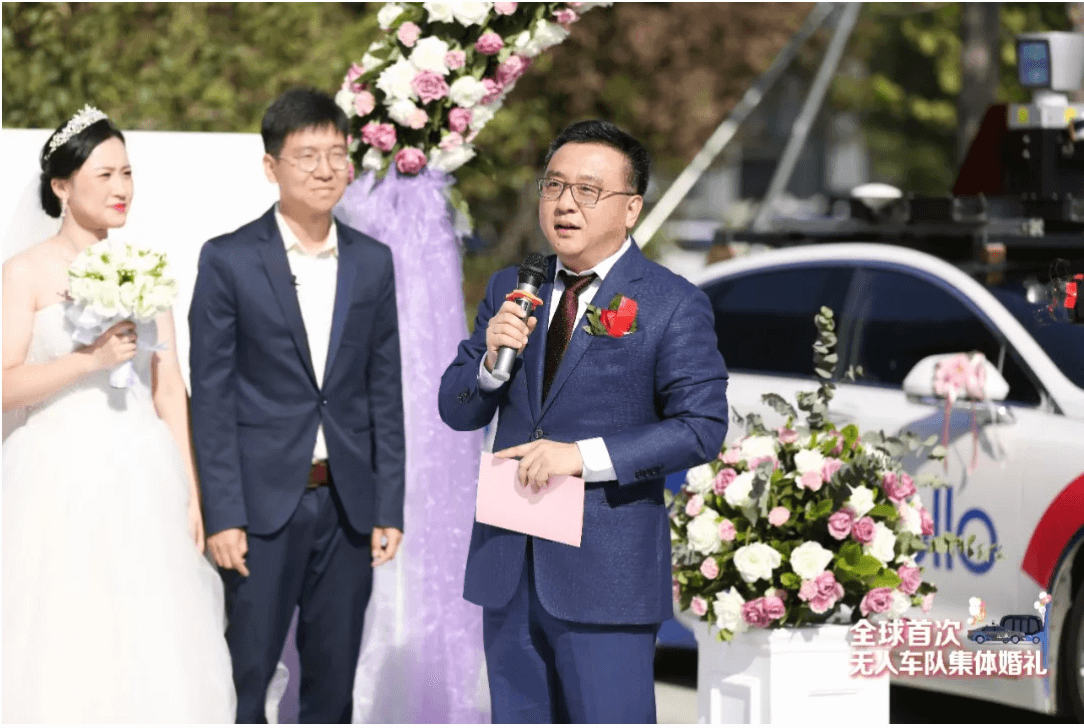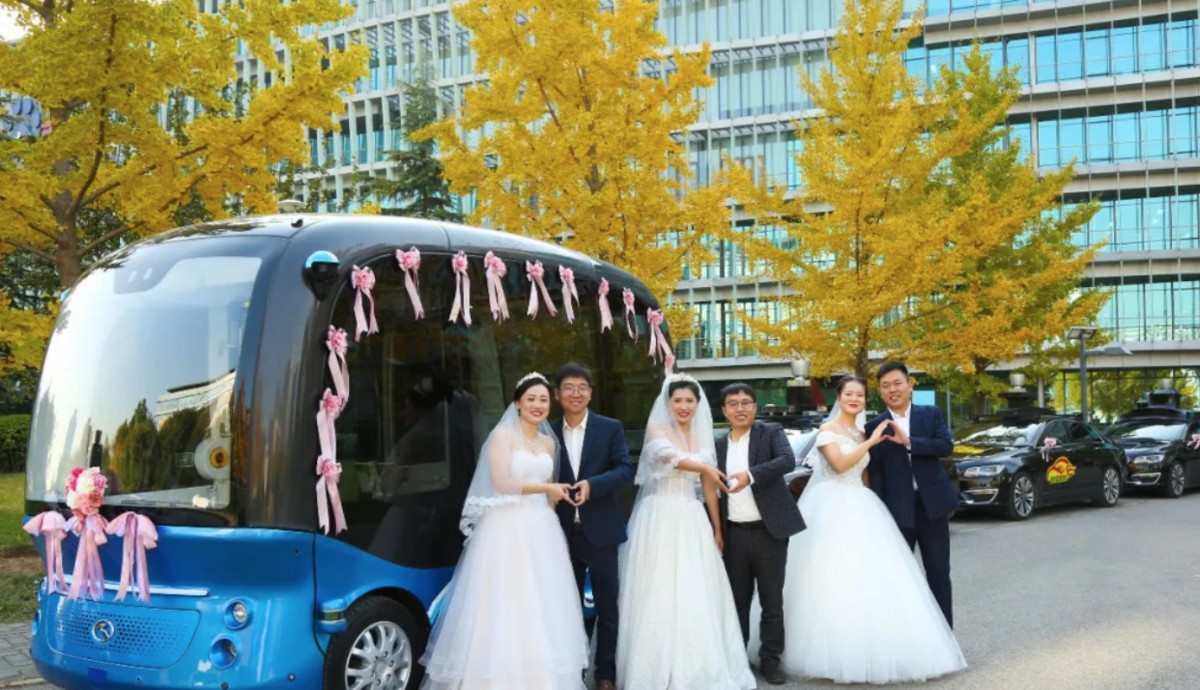
Want a driverless car for your wedding? Work for Baidu
Baidu engineers tie the knot flanked by the self-driving cars they helped build
Hiring a limo for your wedding? That’s so 2017.
If you’re like three engineers who got married this week at Baidu’s Beijing headquarters, the proper choice for a true 21st century wedding is... a fleet of self-driving vehicles.

The newlyweds were driven around the campus on their wedding day by one of Baidu’s Apollo self-driving buses, trailed by other driverless cars. When they arrived at the front entrance, they were greeted by Baidu president Zhang Ya-Qin, who officiated their group wedding.


CEO Robin Li has said there are plans to introduce these buses to more Chinese cities, as well as Tokyo.
The Chinese government has high hopes for Baidu, having appointed the company to lead the nation’s push on autonomous driving technology. As part of the initiative, central planners have declared smart cars a national priority and issued nationwide guidelines for driverless vehicles, according to the China Internet Report 2018.
Waymo enters China as nation accelerates self-driving car push
For more insights into China tech, sign up for our tech newsletters, subscribe to our Inside China Tech podcast, and download the comprehensive 2019 China Internet Report. Also roam China Tech City, an award-winning interactive digital map at our sister site Abacus.
For more insights into China tech, sign up for our tech newsletters, subscribe to our Inside China Tech podcast, and download the comprehensive 2019 China Internet Report. Also roam China Tech City, an award-winning interactive digital map at our sister site Abacus.

